“In the mid-1950s, 18th Avenue was lined with little family shops where, if you didn’t speak Italian, you weren’t Italian enough,” Andrew Zimmern said on a 2014 episode of Bizarre Foods in which Queen-Ann Ravioli and Macaroni was featured. The 18th Avenue he speaks of is in Brooklyn’s Bensonhurst neighborhood, once the home of the borough’s own Little Italy. Eleven years later, the beloved Brooklyn pasta shop is getting attention once again.
Queen-Ann Ravioli and Macaroni has been in residence since 1972, and in that time has been making its own pasta in the back of the store. Incidentally, the back of the store was once a Cammareri Brothers Bakery, a name you might recognize from the film Moonstruck–the same family owned bakeries in real life.
The Queen-Ann products are updated seasonally and include everything from the eponymous ravioli (which Zimmern described as “ravioli heaven”) and macaroni to tortellini, tortelloni, fettuccine, and more. Freshness is key. As owner George Switzer said in 2016, “You come on Tuesday, you’re getting something that’s made Tuesday, you come on Thursday, here come the ravioli that were just made Thursday.”
George Switzer is a former NYPD officer, and he took over the long-running family business from his father-in-law. In that time, he became a “pasta mechanic” of sorts, and he knows how to fix all the machines.
Many of the machines are decades old, but the crowning glory is a Cevasco, Cavagnaro, & Ambrette machine from 1901. It’s quite possibly the only working one in existence, hearkening back to the days when a machine like this would have been moved via horse-drawn carriage. But even if it’s not, these machines were never exactly alike, so the pasta that comes out of it is completely unique.
Dough is kneaded in its base, then fed into the top of the machine where a tube presses it into fettuccine. The fettuccine is cut from the press with a knife. It’s then dried on a stick in the old tradition, a rarity in mass pasta production today. As Zimmern said, “This is a link to the way it was done 100 years ago.”
Switzer told content creators The Rec Team recently that he had someone from a pasta museum call up once to ask about the fettuccine machine, and when Switzer told him it was still working, the person dropped the phone in shock. “Apparently, Francis Ford Coppola tried to buy one of these machines because he thought it would make his pasta taste more ‘rustic,’” The Rec Team wrote on Instagram.
Cevasco, Cavagnaro, & Ambrette was located on 68 Greene Street at the time the machine was made. In 1927, they merged with I. De Francisci & Son to become The Consolidated Macaroni Machine Corporation–indeed, there was an announcement about it that year in The Macaroni Journal, the official publication of The National Pasta Association. This company ultimately became DEMACO, which still exists today, making pasta equipment in Florida.
And while many people take pasta-making classes today, the chances they’re doing it on a 124-year-old machine are next to none. If you want pasta made with it, though, you can visit Queen-Ann Ravioli to get a taste of the past. Or, as The Rec Team said, “you can walk into a restaurant or grocery that carries Queen Ann's products and taste pasta made on a 124-year-old machine. Just let that sink in for a second.”





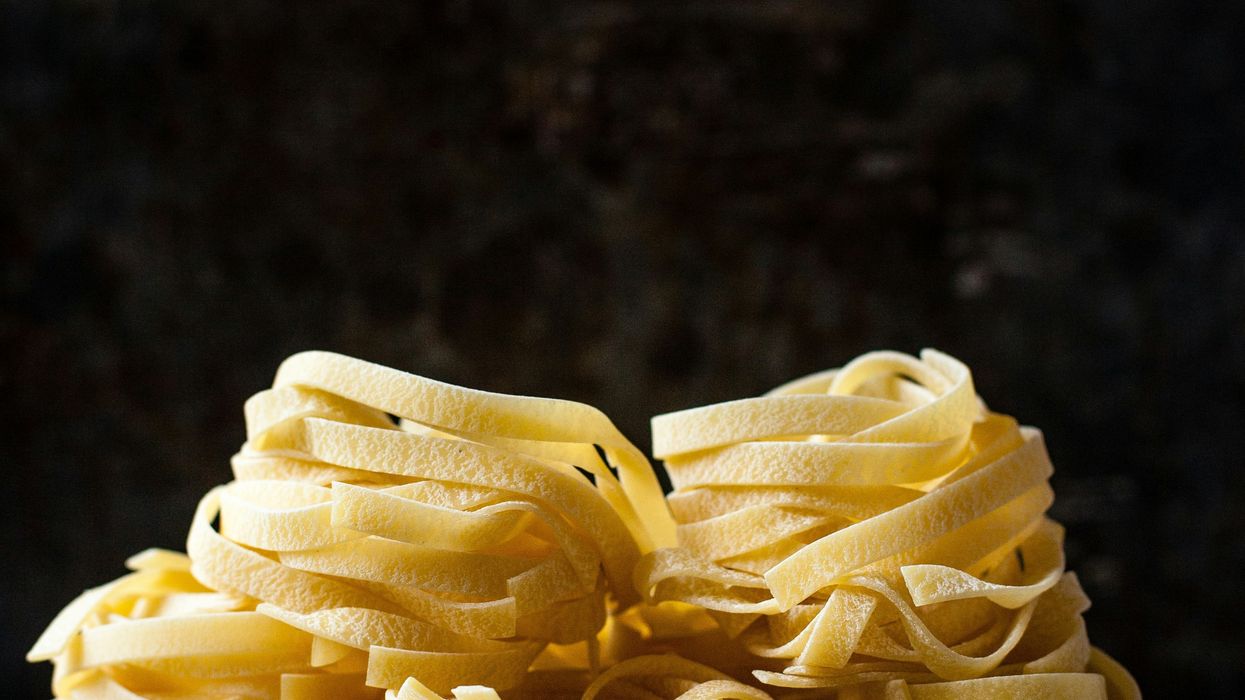












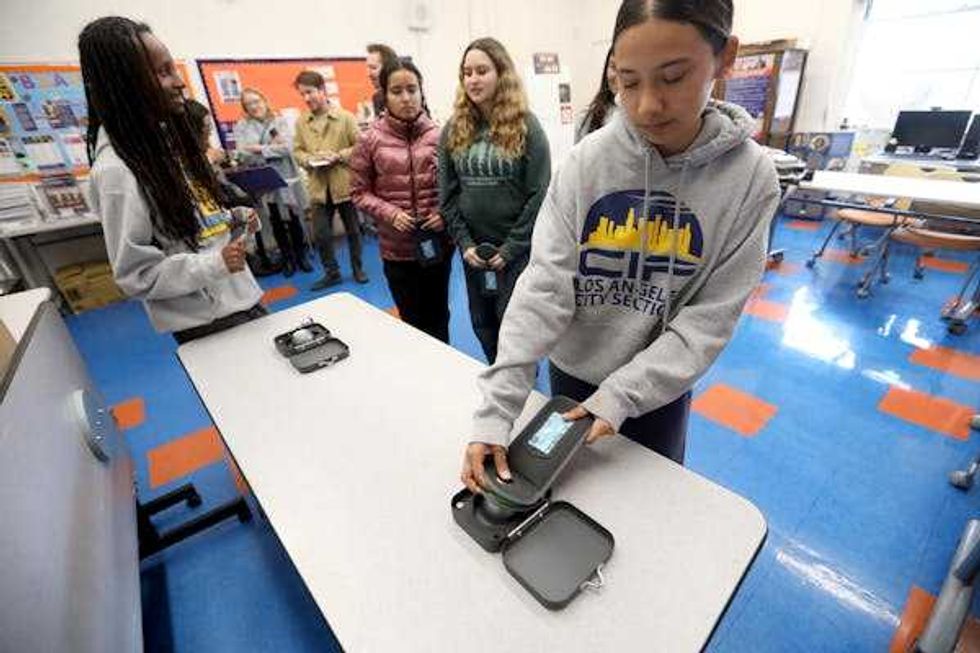 A high school senior shows how to unlock a magnetic pouch that holds her smartphone at University High School Charter in Los Angeles in March 2025.
A high school senior shows how to unlock a magnetic pouch that holds her smartphone at University High School Charter in Los Angeles in March 2025.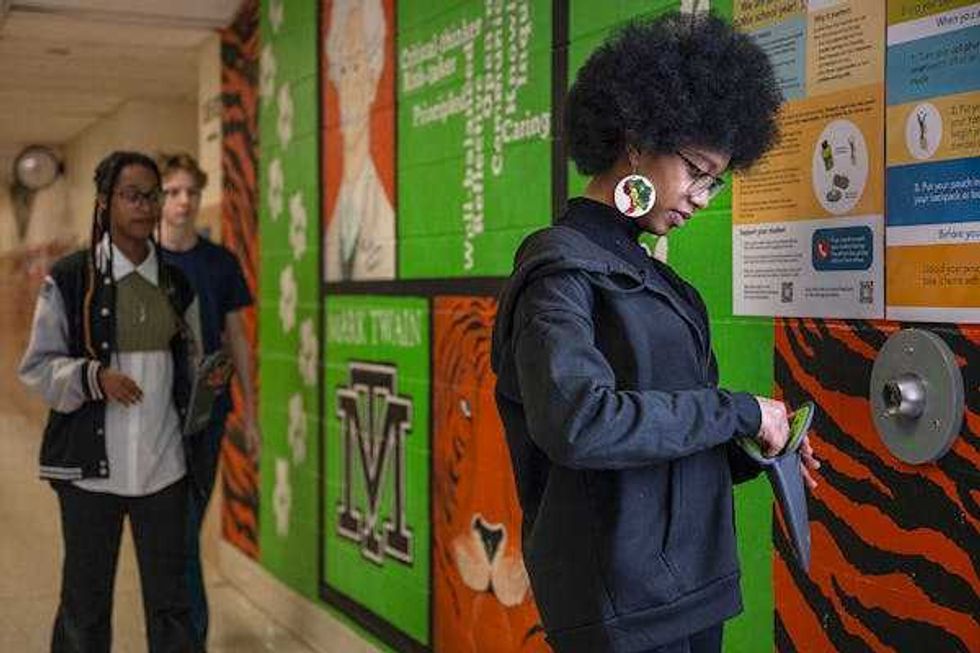 An eighth grader unlocks her cellphone from a pouch at Mark Twain Middle School in Alexandria, Va., in March 2025.
An eighth grader unlocks her cellphone from a pouch at Mark Twain Middle School in Alexandria, Va., in March 2025.
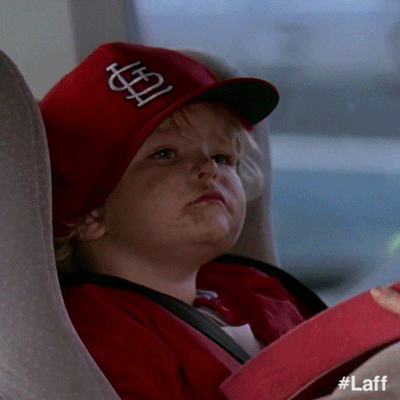 Gif of a mom wiping her child's dirty face via
Gif of a mom wiping her child's dirty face via 
 A woman holds a family member's hand in the hospitalCanva
A woman holds a family member's hand in the hospitalCanva A bird flying across the sky under the sunCanva
A bird flying across the sky under the sunCanva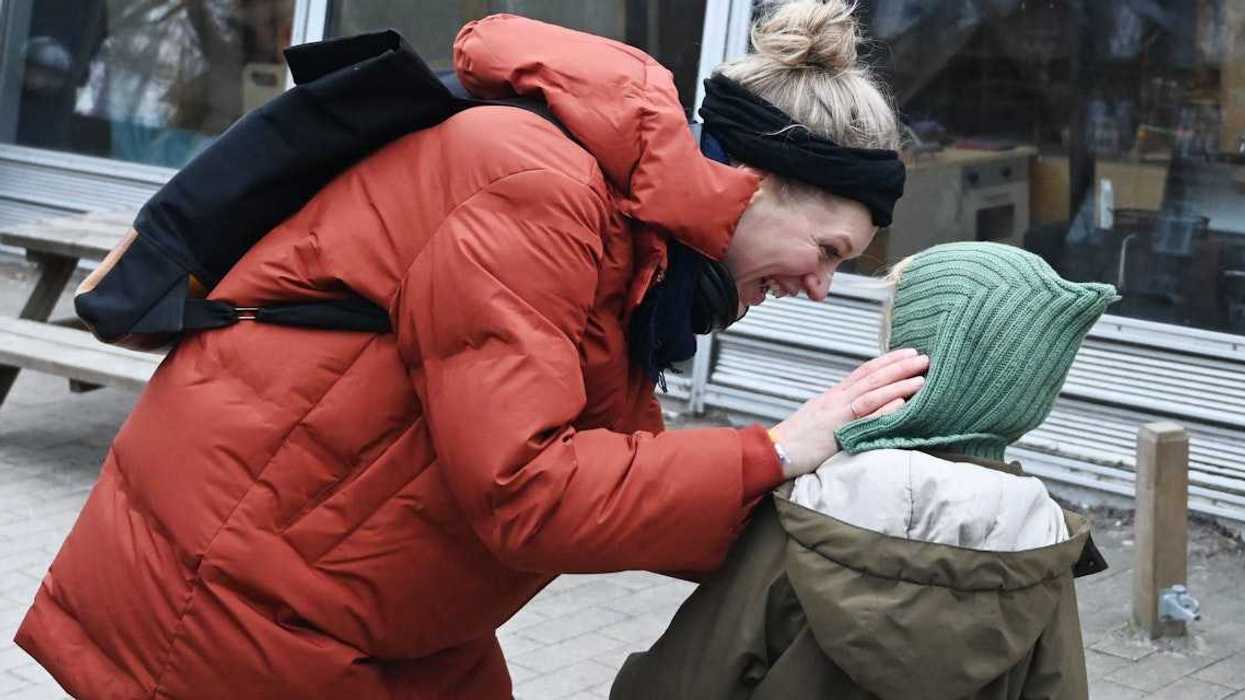
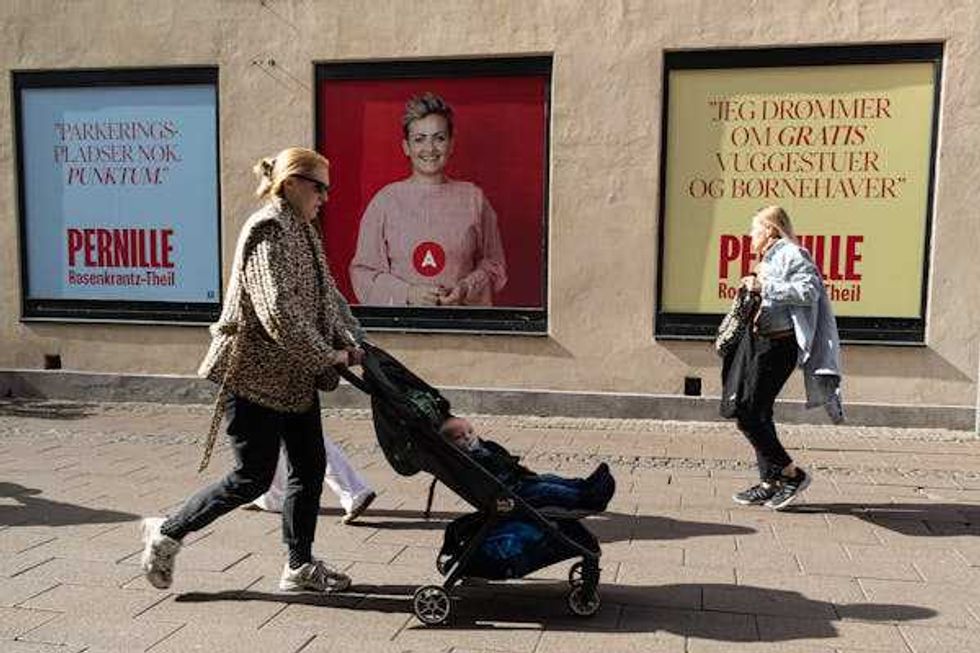 The ‘motherhood penalty’ is largest in the first year after a mom’s first birth or adoption.
The ‘motherhood penalty’ is largest in the first year after a mom’s first birth or adoption. 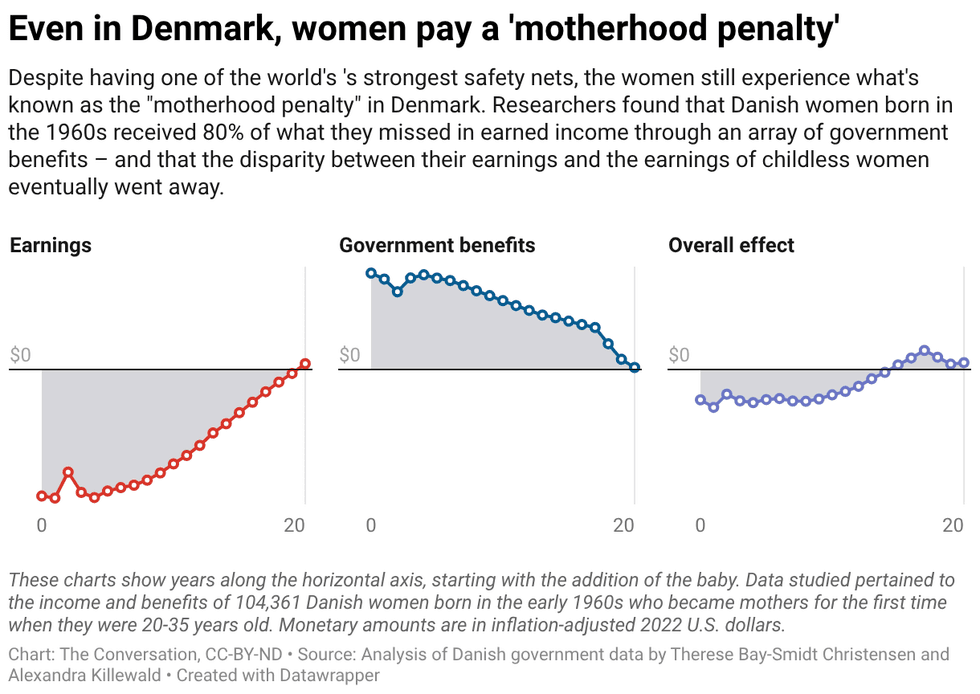
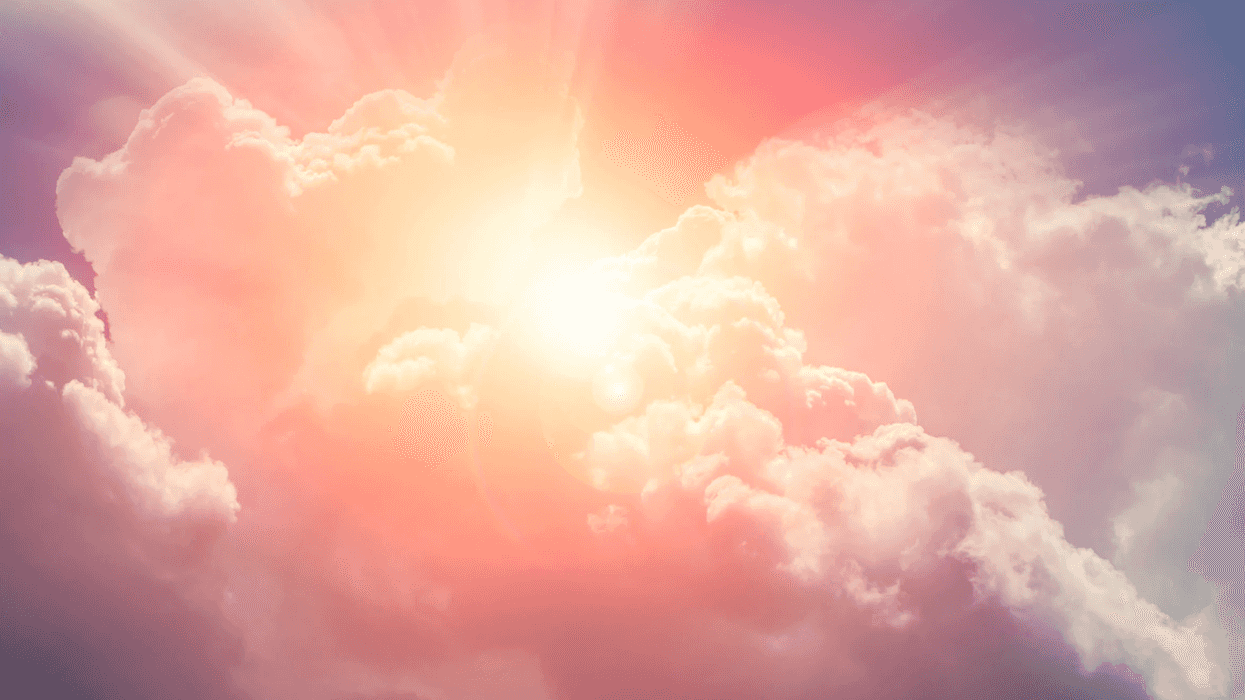

 (LEFT) Film premiere at ArcLight Theatre Hollywood; (RIGHT) LaNasa signing autographs at TIFF.thepaparazzigamer/
(LEFT) Film premiere at ArcLight Theatre Hollywood; (RIGHT) LaNasa signing autographs at TIFF.thepaparazzigamer/  Radical acceptance.Photo credit:
Radical acceptance.Photo credit: 
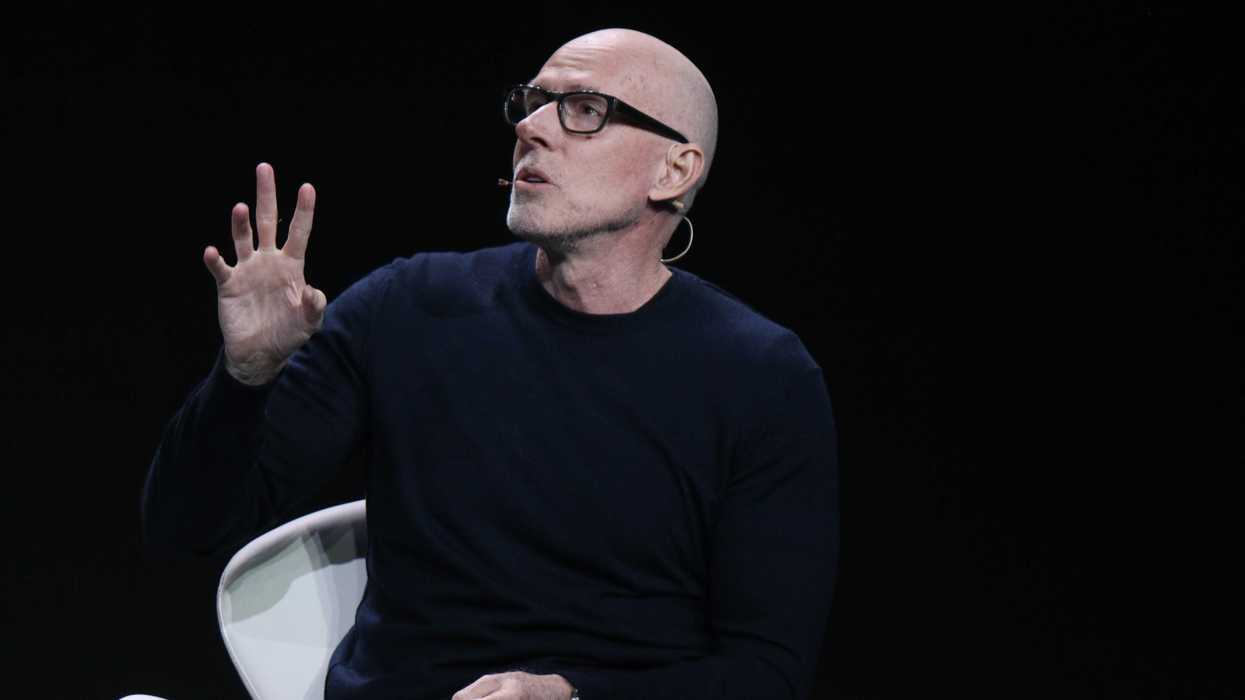 Scott Galloway in Barcelona in 2025.Photo credit: Xuthoria/
Scott Galloway in Barcelona in 2025.Photo credit: Xuthoria/  Resting in the shade of a tree.Photo credit:
Resting in the shade of a tree.Photo credit:  Two people thinking.Photo credit:
Two people thinking.Photo credit: 